CCC: New GB Standard for the Safety of e-bikes Announced
On January 16, 2018, the Ministry of Industry and Information Technology (MIIT) announced that the GB standard 17761-1999 would soon be revised. An interim version has been published by the Authority on their website. The new interim version was open to public discussion, using a standardized feedback form, to communicate concerns and comments regarding the planned change to the authority. The feedback forum was closed February 14, 2018.
On January 8, 2017, MPR China Certification GmbH reported about the certification of electric bicycles which was still planned at that time in its news section. The previous GB Standard 17761-1999 is now replaced by the new current GB Standard 17761-20xx. At this time nothing is known about an update of GB 24155-2009.
If you have questions about the planned CCC certification of bicycles with electric drive, please do not hesitate to contact us. We offer full English translations of relevant standards as well as assistance in preparing for the upcoming certification.
For more information on CCC certification in general, its process, and related costs, please visit our website and news section, where you can check for updates twice a week.
For further details and advice please contact us. You can reach us by e-mail or phone +49 69 2713769150.
For more information you can download our free CCC brochure here as a PDF file or take a look at our book “A Brief Guide to CCC: China Compulsory Certification”, which you can order here directly from Amazon.
New Regulations for CCC Marking Published
Marking products with the CCC logo is the final step of the CCC certification. Without marking, even successfully CCC-certified products may not be imported to China legally.
The Chinese authority CNCA (Certification and Accreditation Administration) has been responsible for the supervision of the CCC marking. As of March 20, 2018 this has changed according to an official announcement. Marking regulations now fall within the scope of the respectively responsible certification authorities such as CCAP or CQC. As a result, the marking requirements and the associated process have changed as well:
The CCC logo must still maintain a ratio (width to height) of 1.27:1. The supplementary-letter (S, EMC, S & E, F, I), which so far referred to the type of CCC certification, such as “S” for Safety or “F” for Fire Protection is now no longer needed. For already certified products for which a marking approval has been issued by the CNCA, the logo shall be adjusted individually by the manufacturer. The changed product markings are no longer subject to approval by the relevant certification authorities.
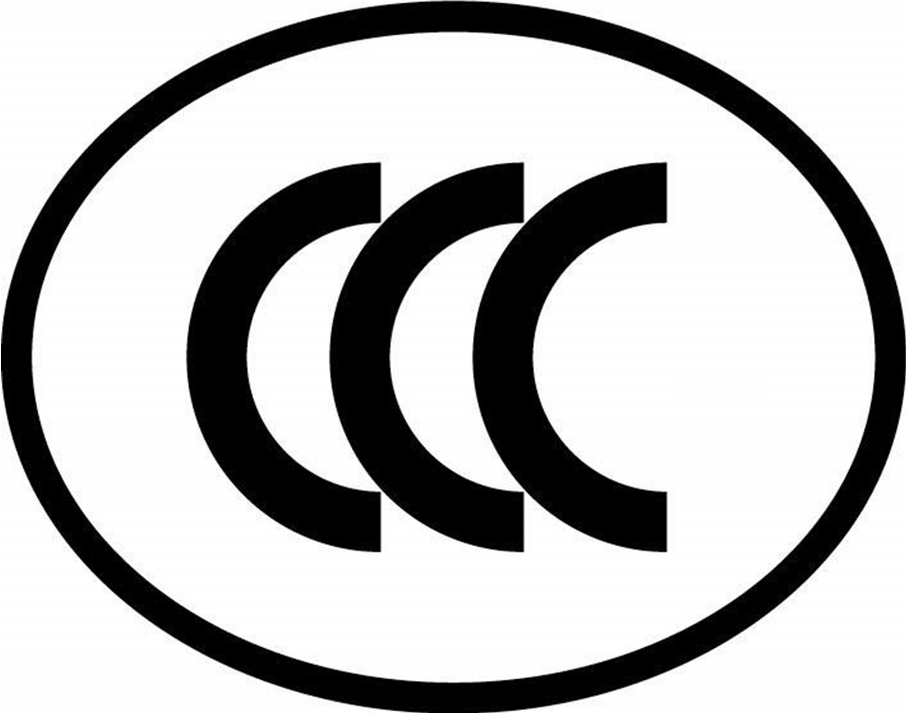
Manufacturers are now allowed to mark CCC certified products immediately. A separate application for marking approval will no longer be necessary, as long as the aforementioned ratio of the CCC logo and the current marking regulations are fully observed. Be aware that some product categories such as wires or brake hoses have specific additional requirements for the CCC marking that will need to be followed.
The CCC marking requirements should always be completely understood and marked accordingly. Otherwise, the import of CCC-certified products to China could lead to difficulties at customs, culminating in the detentions or even confiscation or destruction of goods.
If you have any questions about the new regulations for the marking of CCC certified products or if you need further counseling on how this may affect your projects, please do not hesitate to contact us.
For more information about the CCC certification in general, the process, and the associated costs, please visit our website and our news Section where you will find current updates twice a week.
You can contact us via e-mail, or call us directly (UK: +44 2071931135, Rest of Europe: +49 69 2713769150, US: +1 773 654-2673).
You can also check out our free CCC-Brochure, which can be downloaded right here as a PDF file or you consult our book (in English) “A Brief Guide to CCC: China Compulsory Certification”, which can be found directly here on Amazon.
Chinese automaker Geely acquires Daimler shares worth 7.3 billion euros
On February 23, 2018, the Chinese automaker Geely, represented by the CEO Li Shufu, now reported to be the largest single shareholder of Daimler AG. With the acquisition of 9.7 percent of Daimler shares worth 7.3 billion euros Geely wants to position itself more strongly in the market of electric vehicles and self-driving cars and compete with Google and Apple. According to CEO Li, Daimler has strengthened the investment in recent years in new technologies. Li’s Geely Automotive hopes to increase its cooperation in alternative vehicle drives and online services by purchasing the shares.
To buy into the traditional German manufacturer was an easy game for the billionaire Li Shufu, as Daimler, in contrast to the competitors BWM and VW is not under the control of an influential owner family. Daimler was anything but pleased with the Chinese investment. In autumn 2017, an obvious attempt to buy shares of 5 percent was denied. In response, Li acquired the shares on the open market and surprised Daimler with his announcement last week.
However, Chairman Li wants to actively support the Group in the future, but does not intend to fill one of the seats on the Supervisory Board. In order to present his plans, he has already completed a meeting with the Daimler CEO Dieter Zetsche in the Stuttgart headquarters.
Geely has already taken over the automakers Volvo, Proton and Lotus in the past.

For more information on how CCC certification may affect your company, or for more information about CCC certification in general, the process, and the associated costs, please visit our website and our News Section where you will find current updates twice a week.
Please do not hesitate to contact us for further details and consultation. You can contact us via e-mail, or call us (UK: +44 2071931135, Rest of Europe: +49 69 2713769150, US: +1 773 654-2673).
You can also check out our free CCC-Brochure, which can be downloaded right here as a PDF file or you consult our book (in English) “A Brief Guide to CCC: China Compulsory Certification”, which can be found directly here on Amazon.
Mercedes-Benz about to recall cars in China due to defective seat belts
The recall affects both cars produced in China as well as imported models. The action follows a call from China’s General Administration of Quality Supervision, Inspection and Quarantine. The faulty seat belts could not function properly during an accident and pose a security risk, the Chinese authorities said.
Some of the vehicles were produced by the subsidiary Beijing Benz Automotive and include 18,893 C- and GLC-class models, which rolled of the line between October 2016 and February 2017. For its part, Mercedes-Benz China is recalling 1,886 imported S-, C- and GLC-class vehicles, which were produced between July and December 2016, back to the vehicle repair shops.
The recall will start on March 9, 2018. From this date, the faulty parts will be replaced by the car manufacturers free of charge.
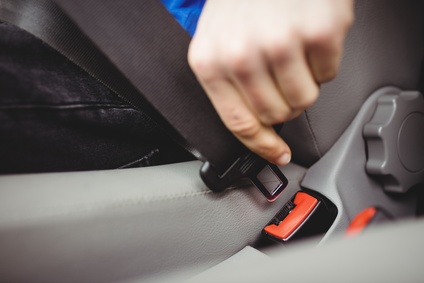
In the recent years the Chinese authorities have been placing more emphasis on the safety of cars and their components. Seat belts are now just as important in China as they are in Europe or the US. The test and quality requirements are based on the GB standard. The tear resistance of the straps and resistance to moisture, temperature, UV light and abrasion are tested. The buckles undergo numerous tests, and there are also restrictions on the materials used. All safety belts produced in China or imported to China must comply with the CCC (China Compulsory Certification) regulations.
For more information on how CCC certification may affect your company, or for more information about CCC certification in general, the process, and the associated costs, please visit our website and our News Section where you will find current updates twice a week.
Please do not hesitate to contact us for further details and consultation. You can contact us via e-mail, or call us (UK: +44 2071931135, Rest of Europe: +49 69 2713769150, US: +1 773 654-2673).
You can also check out our free CCC-Brochure, which can be downloaded right here as a PDF file or you consult our book (in English) “A Brief Guide to CCC: China Compulsory Certification”, which can be found directly hier on Amazon.
The transitional period for the new GB standard for adapters will end on October 13, 2018
The Chinese Technical Expert Group (TC07) for CCC certification announced in January 2018 new information about the implementation of GB standard 2099.3-2015. The standard will replace the current GB standard version 2099.3-2008.
Two years earlier the CNCA issued a statement about the changing certification requirements for adapters and extension cables as well as for USB outlets. In this notification the following three steps were defined for the transitional period of the new GB standard:
- As of January 1, 2017, all USB outlets in China must be certified according to the new GB Standard 2099.3-2015.
- As of April 14, 2017, all sockets in China must be certified according to the new GB Standard 2099.3-2015.
- As of October 13, 2018, only products certified by CCC according to the new GB standard 2099.3-2015 may be traded in China.
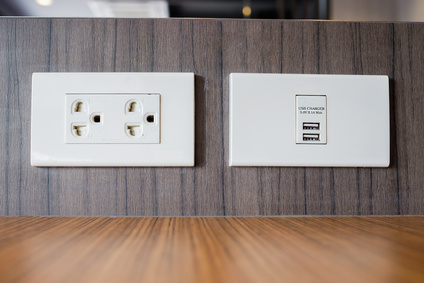
Based on the new information, the first of the three steps has now been changed again: Products certified for CCC in accordance with the old GB standard 2099.3-2008 that were produced before April 14, 2017 may continue to be traded legally until October 13, 2018.
For more information on how the new regulations for the CCC certification may affect your business, or for more information about the CCC certification in general, the process, and the associated costs, please visit our website and our News Section where you will find current updates twice a week.
Please do not hesitate to contact us for further details and consultation. You can contact us via e-mail, or call us (UK: +44 2071931135, Rest of Europe: +49 69 2713769150, US: +1 773 654-2673).
You can also check out our free CCC-Brochure, which can be downloaded right here as a PDF file or you consult our book (in English) “A Brief Guide to CCC: China Compulsory Certification”, which can be found directly here on Amazon.
Ferrari builds electric driven and battery powered super sports car
Ferrari CEO Sergio Marchionne did not yet give specific technical details about the electric driven Ferrari but indicated to release the model to the market in 2020 before the appearance of the new Tesla Roadster model. In addition, all Ferrari cars from 2019 will have components of hybrid technology built in. Also, the first ever Ferrari SUV is planned to release in late 2019 or early 2020 and will be the fastest off-road vehicle available on the market.
Ferrari is far from being the only automaker to invest in electromobility. According to a Reuters analysis, vehicle manufacturers worldwide have invested $90 billion in electric cars. In November 2017, Tesla presented a new roadster, which will be launched in 2020. Porsche is targeting to launch sales of its fully electrically powered Mission E in 2019.
After a few years of hesitation over the introduction of alternative engines and new technologies, Marchionne said in an interview during the Detroit Motor Show that the time had come for a change at Ferrari. He estimates, for example, that by 2025, less than half of the cars sold will have a conventional combustion engine. Instead, he is implying that hybrid and electric cars and fuel cells are on the rise. Marchionne further predicted that automakers will have less than a decade to redevelop and survive in a world of new technologies. He is referring to the successful newcomers like Tesla or the Waymo robot vehicles from Google’s parent company Alphabet Inc.
“If there is an electric supercar, then it should be built by Ferrari” was the motto of CEO Marchionne.
The China CCC certification required for the Chinese market must also be obtained by electric cars. Batteries are subject to separate tests according to Chinese GB standard.
For more information on how a CQC Mark Certification or a CCC certification, or for more information about CCC certification in general, the process and the related costs, please visit our website and our News Section. There you can find updates twice a week.
Please do not hesitate to contact us for further details and consultation. You can contact us via Email, or call us (UK: +44 2071931135, Rest of Europe: +49 69 2713769150, US: +1 773 654-2673).
You can also check out our free CCC-Brochure, which can be downloaded right hereas a PDF file, or you can consult our English textbook “A Brief Guide to CCC: China Compulsory Certification”, which can be found directly here on Amazon.
New Draft Rules on Classification of Cosmetics Released for CFDA registration
The China Food and Drug Administration (CFDA) issued the new Draft Rules on the Classification of Cosmetics on January 17, 2018. Currently cosmetics sold in China are subject to different regulatory requirements depending on their classification as “cosmetics for special use(s)” or “cosmetics for non-special use(s)” which may change soon.
The reason for drafting these new regulations is the development of the cosmetics industry and its regulatory needs that are now more complex than they were two decades ago when the current regulations were implemented. According to the Draft Rules and its explanatory note, the current classification will remain effective and detailed classifications (represented by digital codes) will apply for the purposes of CFDA filling, registration, administration and statistics of cosmetics.

According to the new Draft Rules, the digital code for identification of each cosmetic product consists of four categories:
- The function of the cosmetic (e.g. hair dye, hydrating)
- The relevant body part (e.g. hair, skin, eyes)
- The form of the cosmetic (e.g. cream, lotion, powder)
- The target population (e.g. general population, pregnant women, men)
Each category is represented by two digits within the eight-digit code.
The impact of the new Draft Rules on cosmetics already registered at CFDA remains unclear as the new classification does not modify the legal framework currently applicable. As CFDA may require the digital code to be included on the product label, companies already selling products in China are advised to monitor upcoming publications on this topic.
It is expected that there will be more announcements, revisions and changes to the CFDA regulations in the near future. You will find updated information in our News Section on our website, where we will keep you informed regarding official announcements.
Please do not hesitate to call (UK: +44 2071931135, Rest of Europe: +49 69 2713769150, US: +1 773 6542673) or e-mail and we will be happy to answer questions.
Schaeffler is investing in a new production site in Xiangtan
The Schaeffler Group is planning to build a new production site consisting of two factories in Xiangtan, Hunan province, central China where components for customers in south and southwest China are to be produced. The German supplier will start production in the first factory at the end of 2018, but did not specify a precise date for the opening of the second factory, which includes a logistics and training center. Schaeffler currently operates 8 factories in China, most of them in the east of the country, producing parts for engines and transmissions, body parts as well as ball bearings for car manufacturers and other industries.
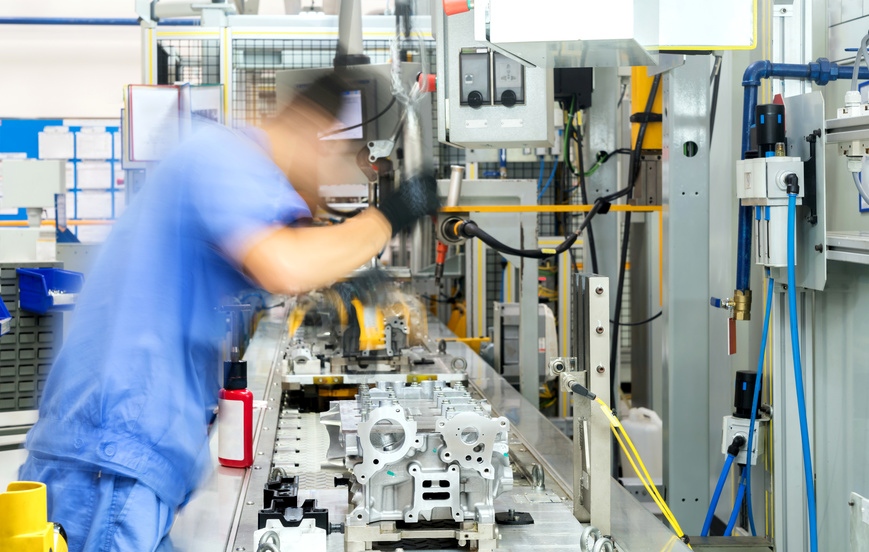
The construction of the new production site is the answer from Schaeffler to future developments and requirements in the Chinese and international markets. Under the future-oriented concept “Factory for tomorrow”, the buildings are arranged in the shape of a butterfly. The design and arrangement of the buildings allows close cooperation between the actual production area and other important departments, e.g. sales, purchasing and human resources, which are also located there.
The production area is modular, meaning that new production lines can be easily added or replaced. This will enable Schaeffler to respond even more flexibly to new trends and bring new products to the market. At the opening ceremony, CEO Oliver Jung named the keywords electromobility, Industry 4.0 and digitalization for the operation of the new production site, where mainly parts and assemblies for engines and transmissions as well as body parts for the automotive industry are produced.
For more information on how CCC certification may affect your company, or for more information about CCC certification in general, the process, and the associated costs, please visit our website and our News Section where you will find current updates twice a week.
Please do not hesitate to contact us for further details and consultation. You can contact us via e-mail, or call us (UK: +44 2071931135, Rest of Europe: +49 69 2713769150, US: +1 773 654-2673).
You can also check out our free CCC-Brochure, which can be downloaded right here as a PDF file or you consult our book (in English) “A Brief Guide to CCC: China Compulsory Certification”, which can be found directly here on Amazon.
New GB Standard for Compulsory Certification for Enclosures of Electric Household Devices and other Power Supply Enclosures.
The GB/T17466.24-2017 was published on July 31, 2017 and came into force on February 1, 2018. GB/T17466.24-2017 replaces the previous standard GB/T17466.24-2008.
GB/T17466.24-2017 governs the CCC certification of enclosures for electrical household appliances, as well as for enclosures for other household devices, such as fuse boxes for example.
Since February 1, 2018, the certification of the affected products must be carried out according to the new updated standard. New and pending products applications must be in compliance with the new standard.
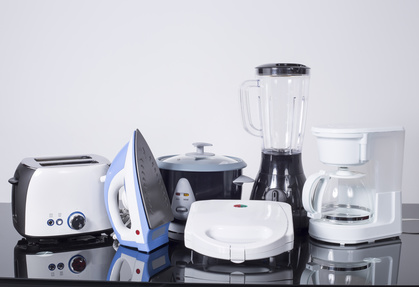
If a product has been certified according to the old standard, a transition period until February 1, 2019, comes into play in which companies have the opportunity to update their product certifications to the new standard. If manufacturers fail to update their certificates within the one-year transition period, the affected certificates will be suspended until further notice. Certificates that have not been updated by May 1, 2019 will be cancelled.
If you have any questions about CCC certification in general, or on the associated costs and process, please do not hesitate to contact us personally.
Write us an Email or call us at: + 49-69-2713769150. We gladly support you.
Visit our website or our News Section for regular updates on the subject of CCC and other certifications for the Chinese market.
Further information on CCC certification can be found in our “CCC Made Easy”, which you can download here free of charge, and in our English booklet “A Brief Guide to CCC: China Compulsory Certification”, which you can order here directly on Amazon.


